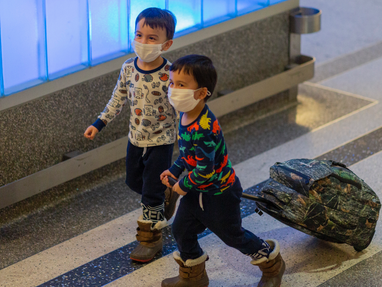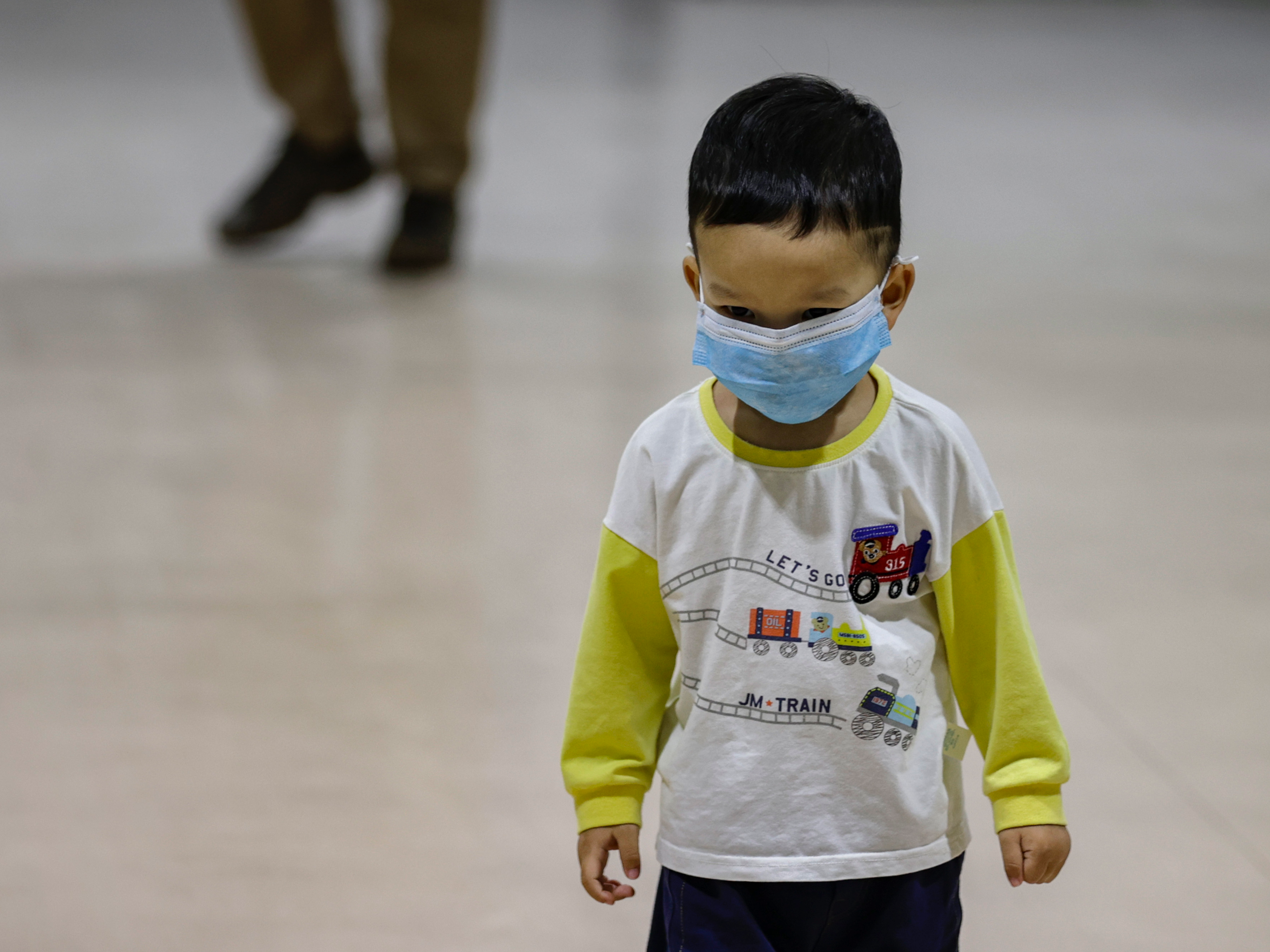- A new report estimates that, for every child in intensive care with COVID-19, there are 2,318 other children infected.
- While the CDC said there were around 2,500 US kids infected on April 6, the researchers say it was likely closer to 176,190 children.
- Based on the projections, if at least 25% of the US population is infected by the end of 2020, as many as 44,000 children would need to be hospitalized and 5,400 in intensive care.
- That’s enough to overwhelm existing resources, the study concludes: there are just 5,100 pediatric ICU beds in the US, most of which are in big cities.
- Visit Insider’s homepage for more stories.
There is still plenty of confusion when it comes to how the novel coronavirus impacts children.
Research suggests that children and infants may be less susceptible to the virus than adults, and one study found up to 90% of kids who contract the virus are asymptomatic, although a small number of severe cases have been reported. According to a CDC report on April 6, just over 2,500 of the 150,000 confirmed cases with recorded ages were kids.
As a result, the prevailing message in the US has been that the risk to kids is low, but we need to close schools to make sure they’re not spreading the virus around to more vulnerable people.
However, a new study warns that, despite social distancing measures, there may be far more US children infected with the novel coronavirus than previous thought. Even if many of those cases are mild or asymptomatic, the researchers warned it’s enough to overwhelm pediatric hospitals by the end of the year.

According to the new study, published April 16 in the Journal of Public Health Management and Practice, for every one child hospitalized with a severe case COVID-19, 2,318 others could be infected with the virus.
There were 74 pediatric cases of coronavirus reported in US hospitals between March 18 and April 6. But the researchers from the University of South Florida and the Women's Institute for Independent Social Enquiry calculated that the actual number of infected children across the country at that time was probably closer to 176,190.
Those numbers could skyrocket by the end of 2020. If a quarter of the population is infected, that would translate to over 3 million children with COVID-19, according to the research projections.
These numbers were calculated based on peer-reviewed case data from China. Researchers calculated the projections based on the number of severe cases, the number of lab-confirmed cases, and the estimated reporting rate to estimate how many cases may have gone unreported. The projections were conservative, based on data that 70% of cases were reported, and 2.9% percent of those confirmed cases were severe.
If coronavirus continues to spread, severe cases could overwhelm pediatric hospitals, researchers warn
According to the projections in the study, 11% of children with COVID-19 will have severe cases requiring hospitalization and intensive care.
If the rate of infection keeps growing across the US as predicted, they warn, it could overwhelm the available facilities.
If 25% of the population were to be infected, that would be more than 44,000 children would need hospitalization, and 5,400 children would need intensive care, more than the number of bed currently available.
There are only 5,100 beds in pediatric intensive care units in the US, according to the study, 94% of which are in major cities.
And based on previous case studies, children with severe COVID-19 spend an average of two weeks in the hospital.
This means that if there were to be a high rate of infection among children, medical resources would quickly be overwhelmed by demand, the study warns.
"Hospitals should be prepared and have the proper equipment and staffing levels to deal with a potential influx of younger patients," author Jason Salemi, associate professor of epidemiology in the USF College of Public Health, said in a press release.
These projected consequences underscore the importance of taking consistence steps to prevent the spread of the virus nationwide - chiefly, hand-washing and social distancing continue to be crucial, he added.
